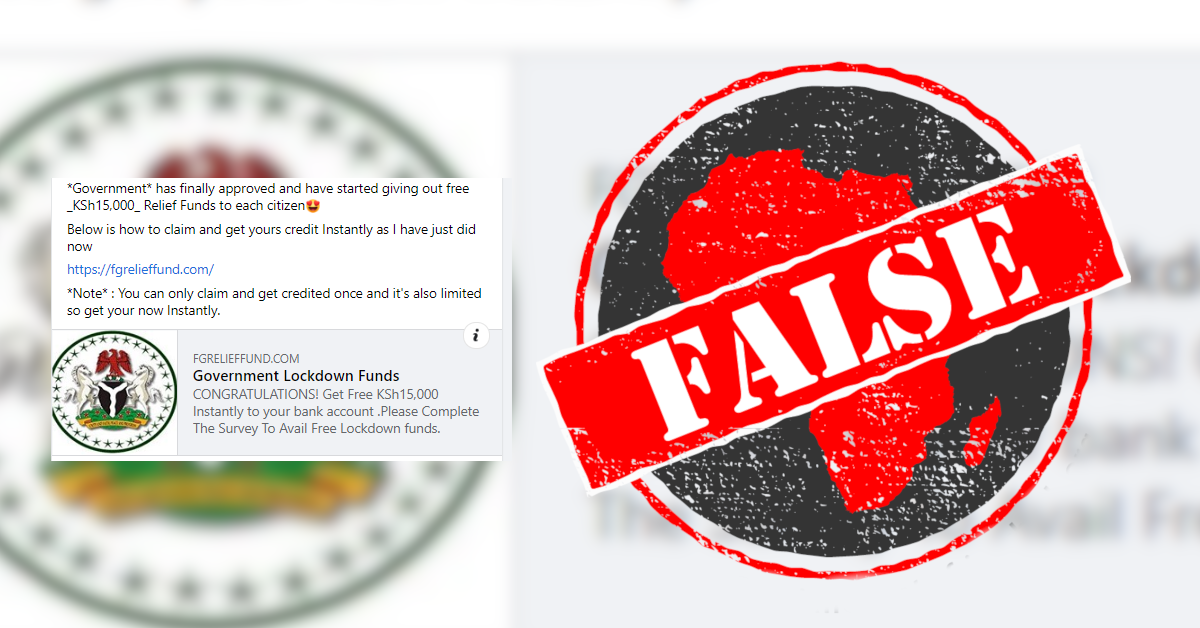A Facebook post claims the Kenyan government will be giving KSh15,000 in “relief funds” to every citizen.
The 14 July 2020 post on a popular Kenyan page reads: “*Government* has finally approved and have started giving out free _KSh 15,000_ Relief Funds to each citizen.”
It shares a link to a website where Kenyans can apparently claim the money.
This is when we started to get suspicious. While the website address was different, the rest of the details were almost exactly the same as a scam promising “lockdown funds” Africa Check debunked in June. 
Same wording, process as earlier scam
The website asks visitors to “Complete The Survey To Avail Free Lockdown funds” – the same wording as on the older website.
The rest of the steps in the process are also identical, including answering a series of questions, such as if you are a Kenyan citizen, how much money you need to sustain you through the lockdown, and what you intend on using the money for.
Links to both websites from Facebook show the Nigerian government’s coat of arms, rather than the Kenyan coat of arms.
Nigeria’s coat of arms shows two white horses supporting a black shield, on which stands a red eagle. Kenya’s shows two lions holding spears and a traditional East African shield, and appears on all official Kenya government websites.
We concluded the other website was a phishing scam intended to trick unsuspecting people into sharing their personal information, such as bank details. The same is the case here.
For more advice on how to spot online scams, read our detailed guide.
Republish our content for free
For publishers: what to do if your post is rated false
A fact-checker has rated your Facebook or Instagram post as “false”, “altered”, “partly false” or “missing context”. This could have serious consequences. What do you do?
Click on our guide for the steps you should follow.
Publishers guideAfrica Check teams up with Facebook
Africa Check is a partner in Meta's third-party fact-checking programme to help stop the spread of false information on social media.
The content we rate as “false” will be downgraded on Facebook and Instagram. This means fewer people will see it.
You can also help identify false information on Facebook. This guide explains how.





Add new comment